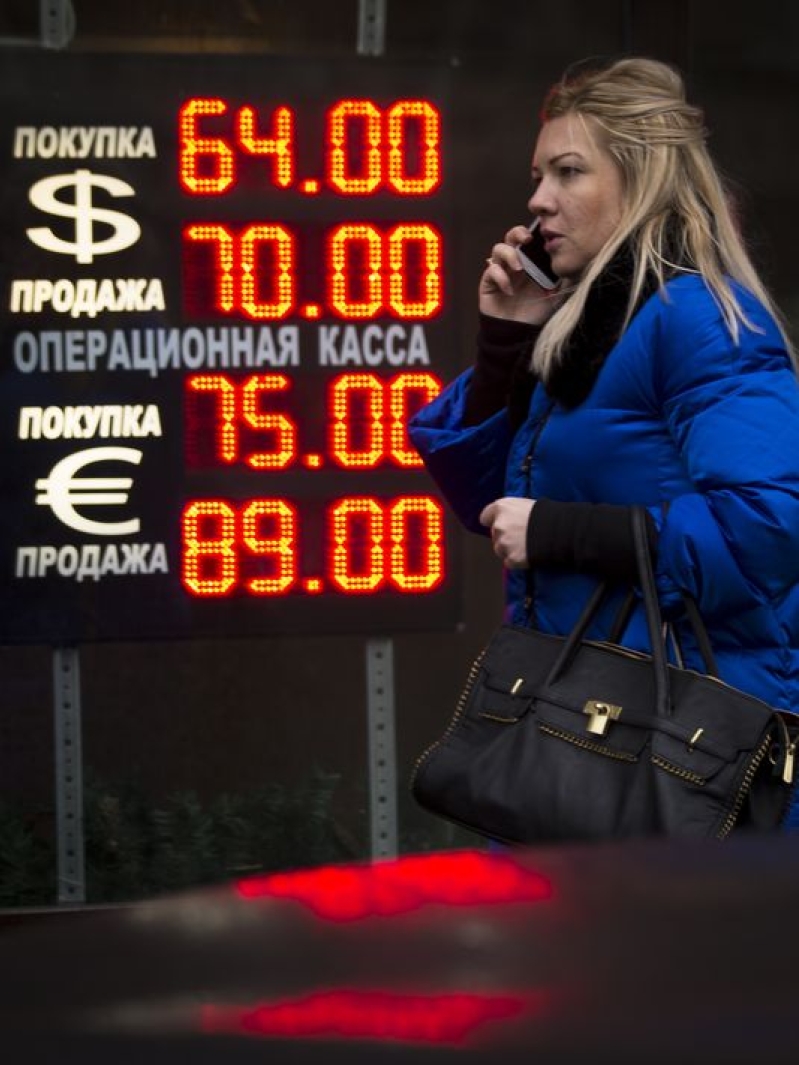
Despite efforts by Russia's central bank to save the currency, the ruble fell over a six-day period to historic lows.
The Bank of Russia decided to raise its benchmark rate from 10.5 percent to 17 percent on Monday after the ruble's value had fallen 10 percent. According to Paul Davidson of USA Today, the move came on the heels of both tougher sanctions against Russia authorized by the U.S. Congress and sliding oil prices.
"The decision is aimed at limiting substantially increased ruble depreciation risks and inflation risks," Russia's central bank said in a statement.
USA Today noted that the ruble fell to 70 per dollar for the first time. Russia's central bank raised the key interest rate to halt a steep slide in the currency markets and stave off inflation.
According to the Associated Press, the ruble's collapse has spurred ordinary Russians to buy imported products such as fridges and cars. While Russian President Vladimir Putin seemed to be holding up to the pressure, state television urged citizens not to panic from this event.
"The Central Bank's move on interest rates aimed to encourage currency traders to hold onto their rubles - doing so gives them potentially big returns, certainly in comparison to many other currencies, such as the dollar, where the interest rate returns are near zero percent," the Associated Press wrote.
Charles Movit of HIS Global Insight told USA Today that oil accounts for about two thirds of Russia's exports and about half of government revenue. As oil prices dropped sharply, the ruble has fallen 50 percent against the dollar since September.
"It's pushing inflation higher and higher," Movit said.
According to Timothy Ash of Standard Bank, based in London, the ruble's fall has been "the most incredible currency collapse I think I have ever seen in the 17 years in the market, and 26 years covering Russia."
"There is now a huge credibility gap for Russian policy makers in the eyes of the market," Ash said.
Davidson reported that although the effort did not work, the Russian government has spent nearly $100 billion of its reserves to prop up the ruble, including $6 billion in the past two weeks. However, Movit thinks that the central bank's recent move may be more effective.
"I think it should steady things a bit," Movit said.
The Russian government also downgraded its economic forecast next year and predicted that the economy will sink into recession. According to the Associated Press, most international forecasters think the Russian economy could contract next year, given that it is not diversified enough to withstand shocks caused by drops in oil prices.






